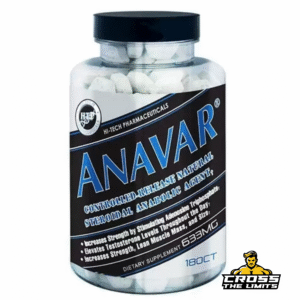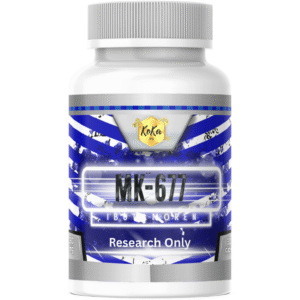Omega fats, also known as omega-3 and omega-6 fatty acids, are essential fats that the body needs for optimal health. These fats are essential because the body cannot produce them independently, so they must be obtained through the diet. Omega-3 fats are known for their anti-inflammatory properties and are found in fatty fish, flaxseeds, and walnuts. Omega-6 fats, on the other hand, are found in vegetable oils, nuts, and seeds and are essential for brain function and skin health. Omega-3 and omega-6 fats play crucial roles in the body and are necessary for overall well-being.
Omega fats are essential for various bodily functions, including brain function, heart health, and inflammation regulation. They are also crucial for the development and function of the nervous system, as well as for the production of hormones that regulate blood clotting and the contraction and relaxation of artery walls. Consuming a balanced ratio of omega-3 to omega-6 fats is essential to ensure optimal health, as an imbalance can lead to inflammation and an increased risk of chronic diseases. Understanding the role of omega fats in the body is crucial for maintaining overall health and well-being.
The Role of Omega Fats in Heart Health
Omega-3 fats have been shown to have numerous benefits for heart health. They can help reduce inflammation, lower blood pressure, and decrease the risk of developing blood clots. Omega-3 fats can also help lower triglyceride levels, a type of fat in the blood that can increase the risk of heart disease. Additionally, omega-3 fats have been shown to improve the function of the endothelium, which is the lining of the blood vessels. This can help improve blood flow and reduce the risk of developing cardiovascular disease.
Omega-6 fats also play a role in heart health, as they help regulate blood pressure and promote healthy cholesterol levels. However, consuming omega-6 fats in moderation is essential, as an excessive intake can lead to inflammation and an increased risk of heart disease. Consuming a balanced ratio of omega-3 to omega-6 fats is crucial for maintaining heart health and reducing the risk of developing cardiovascular disease. Understanding the role of omega fats in heart health is essential for making informed dietary choices that can help support overall cardiovascular well-being.
Omega Fats and Brain Function
Omega-3 fats are essential for brain function and development. They are necessary for maintaining the structure and function of brain cell membranes and have been shown to have neuroprotective properties. Omega-3 fats can also help reduce inflammation in the brain, which can help protect against age-related cognitive decline and neurodegenerative diseases such as Alzheimer’s. Additionally, omega-3 fats have been shown to improve mood and reduce the risk of developing depression and anxiety.
Omega-6 fats also play a role in brain function, as they are essential for producing neurotransmitters that regulate mood and behaviour. However, consuming omega-6 fats in moderation is essential, as an excessive intake can lead to inflammation in the brain and an increased risk of developing neurological disorders. Consuming a balanced ratio of omega-3 to omega-6 fats is crucial for maintaining optimal brain function and reducing the risk of developing cognitive decline and mood disorders. Understanding the role of omega fats in brain function is essential for making dietary choices that can support overall cognitive well-being.
Sources of Omega Fats
A variety of foods are rich in omega-3 and omega-6 fats. Some of the best sources of omega-3 fats include fatty fish such as salmon, mackerel, sardines, flaxseeds, chia seeds, and walnuts. These foods are rich in omega-3 fats and provide other essential nutrients such as protein, vitamins, and minerals. Some of the best sources of omega-6 fats include vegetable oils such as soybean oil, corn oil, sunflower oil, nuts and seeds such as almonds, pine nuts, and pumpkin seeds.
Consuming a variety of foods rich in both omega-3 and omega-6 fats is vital to ensuring a balanced intake of these essential nutrients. Fatty fish, nuts, seeds, and vegetable oils can help ensure that you are getting an adequate intake of omega fats. Understanding the sources of omega fats is essential for making informed dietary choices that can help support overall health and well-being.
The Importance of Balancing Omega-3 and Omega-6 Fats
Consuming a balanced ratio of omega-3 to omega-6 fats is vital to ensure optimal health. While both fats are essential for the body, an imbalance in their intake can lead to inflammation and an increased risk of chronic diseases such as heart disease, diabetes, and obesity. The typical Western diet tends to be high in omega-6 and low in omega-3 fats, which can contribute to an imbalance in these essential nutrients.
To achieve a balanced intake of omega-3 and omega-6 fats, it is essential to focus on consuming more foods rich in omega-3 fats while also moderating your intake of foods high in omega-6 fats. This can be achieved by incorporating more fatty fish, flaxseeds, chia seeds, and walnuts into your diet while reducing your consumption of processed foods high in vegetable oils. Understanding the importance of balancing omega-3 and omega-6 fats is crucial for making dietary choices that can help support overall health and well-being.
Incorporating Omega Fats into Your Diet
Incorporating omega fats into your diet can be easy and delicious. A straightforward way to increase your intake of omega-3 fats is by adding fatty fish such as salmon or mackerel to your weekly meal plan. These fish can be grilled, baked, or broiled for a healthy and flavorful meal rich in omega-3 fats. Another easy way to incorporate omega-3 fats into your diet is by adding flaxseeds or chia seeds to your morning smoothie or oatmeal. These seeds can also be sprinkled on salads or yoghurt for a nutritious boost.
To increase your intake of omega-6 fats, you can incorporate more nuts and seeds into your diet. Almonds, pine nuts, and pumpkin seeds are all great sources of omega-6 fats that can be enjoyed as a snack or added to salads and stir-fries. Additionally, using vegetable oils such as olive or avocado oil for cooking can help increase your intake of omega-6 fats while providing other essential nutrients such as antioxidants and monounsaturated fats. Understanding how to incorporate omega fats into your diet is essential for making healthy and delicious dietary choices supporting overall well-being.
Supplementing with Omega Fats
While it is best to obtain omega fats through whole foods, some people may benefit from supplementing with omega-3 fatty acids. This is especially true for individuals who do not regularly consume fatty fish or have certain health conditions that may require higher doses of omega-3 fats. Fish oil supplements are a popular option for increasing omega-3 intake and are available in liquid or capsule form.
When choosing a fish oil supplement, it is essential to look for one that is high in EPA (eicosapentaenoic acid) and DHA (docosahexaenoic acid), which are two types of omega-3 fatty acids that have been shown to have numerous health benefits. Choosing a supplement tested for purity and potency is also essential to ensure you get a high-quality product. Understanding how to supplement with omega fats is essential for making informed decisions about your dietary choices and ensuring that you adequately intake these essential nutrients.
In conclusion, omega fats play crucial roles in the body and are necessary for overall health and well-being. They are essential for heart health, brain function, inflammation regulation, and numerous other bodily functions. Consuming a balanced ratio of omega-3 to omega-6 fats is crucial for maintaining optimal health and reducing the risk of chronic diseases. Incorporating various foods rich in both types of fats into your diet ensures you adequately intake these essential nutrients. While it is best to obtain omega fats through whole foods, some people may benefit from supplementing with omega-3 fatty acids to ensure they get enough of these essential nutrients. Understanding the importance of omega fats in the body is crucial for making informed dietary choices that can support overall health and well-being.















